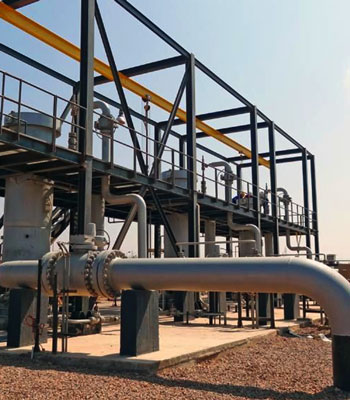Every product has a lifespan that can be extended with dedicated care and maintenance. Industrial valves are no different when it comes to being subjected to wear and tear. Despite high-grade maintenance, all valves wear down over time. It is important to know how to identify the red flags that tell you that your valve needs repair or replacement.
1.It is no more leakproof.
Industrial valves are supposed to be 100% leakproof. A leaky valve is like a ticking time bomb. Worn out valves tend to leak out the material, which can pose a huge risk to the entire facility, especially if the material is flammable. When a valve shows signs of leakage, it calls for immediate action. Depending on the intensity of the leakage, the valve can be repaired or entirely replaced with a new one.
Valve leakage occurs when the rotor clearance expands and compromises the valve's sealing capacity. It also increases the pressure around the sealing area and causes the material to leak.
2. The airlock does not rotate.
This sign could indicate a more serious issue, such as a broken shaft which means that the valve needs a replacement. Foreign objects lodged inside the box can also cause electrical issues with the motor. A worn-out chain and gearbox can also cause the airlock to stop rotating.
It is safer to change the faulty valve with a customised one that fits and works perfectly.
3. Material overload
When the material flow is more than the stipulated amount, it can lead to accumulations on the conveying pipeline. The accumulation damages the rotor blades in the motor that overworks to keep the accumulation moving down the pipeline. This problem is quite common in pipelines that convey sticky food substances such as sugar and flour.
This expensive issue can be avoided by choosing a valve that works efficiently for any material. The rotors must be checked and cleaned regularly to avoid material accumulation.
Also Read : Why Is It Important To Select The Right Industrial Valve?
4. Noisy valves
Valves are designed to work silently, and anything contrary to this fact signifies a minor or major repair. If the valve emits strange noises, it can only mean one of the following issues:
Apart from the above-mentioned problems that can commonly occur in valves, industrial valve suppliers in Singapore pinpoint a few more issues that call for valve repair. The following problems are common amongst control valves, although they can occur in other types of valves that have been in use for quite some time.
1.Internal and external leakages.
The leak rate for control valves is defined by the Maximum Allowable Leakage or MAL. Any leak within this permissible range does not require a repair. There are separate reasons for external and internal leaks.
If the valve leaks internally, it can indicate:
An external leak from the valve indicates:

2. Sticky valves
Pneumatic valves are prone to get stuck if the positioner is faulty or if there is already a leak that has been controlled by tightening the package. Valves are engineered to work for applications within a specific packing torque value. Over torquing the packing will cause the valve to stick.
3. Valve stops working.
A control valve can simply stop working for the following reasons:
At some point, all valves need to be replaced with new ones. But until then, their durability can be extended by subjecting them to periodic maintenance and repairs. It is important to have an expert crew that carries out inspections and rectifies problems before they can go out of control.
It is also essential to purchase the right valve for the right application. The selection process also includes details such as temperature, flow, media, and process conditions.
Oilway is Singapore's largest and most popular industrial valve manufacturer and supplier. We design and manufacture an eclectic range of industrial valves suitable for innumerable applications. Our valves are highly efficient, extremely durable, and engineered to work in harsh industrial environments. To know more about our products call @ +86-21-69891289.